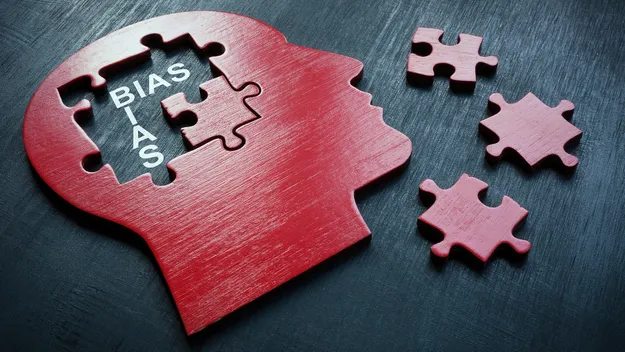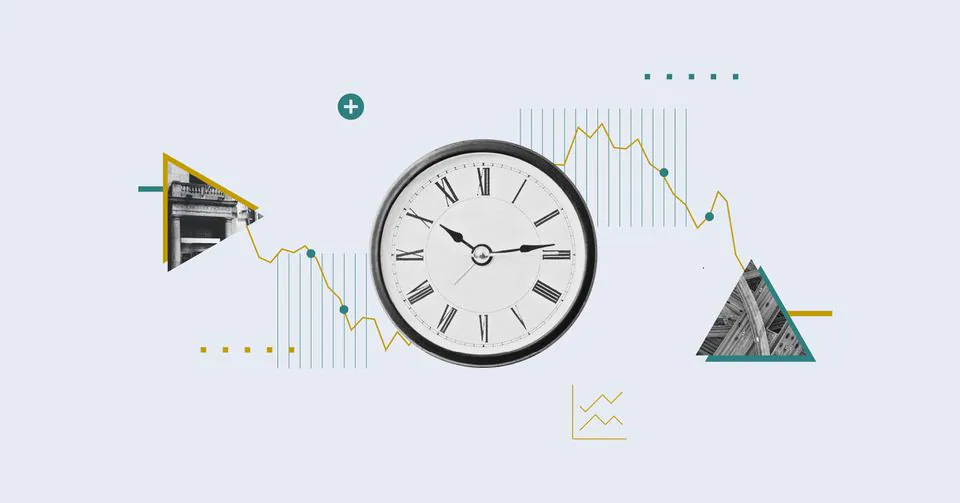“A wave of new scientific discoveries reveals that learning to lean into uncertainty in times of rapid change is a promising antidote to mental distress.”
–Maggie Jackson, New York Times1
For many people, uncertainty is something to avoid or at least mitigate. But what about the positive things that uncertainty can bring? Without it, there would be no surprises, no joy in watching sports, and no 10% average annualized return on the stock market over the past century.2
Let me explain that last one: If there was no uncertainty, returns would be predictable and there would be no difference between putting your money in a savings account or investing it in the stock market. We’ve all lived through years like 2022 when the market went down a lot and years like 2023 when it went up a lot. The potential risk makes possible the potential reward. So thank goodness for uncertainty.
People often talk more about the downside to uncertainty than its upside. There’s even a term—loss aversion—that reflects how a loss can feel more painful than a gain of an equal amount. Maybe that’s why uncertainty is underrated.
Because of uncertainty, life is one cost-benefit analysis after another, and we have no choice but to manage risk. At the extremes, some people may try to completely ignore risk, while others might try to eliminate it. Then there’s everyone else. We can’t control the weather, but we can take an umbrella if it looks like it might rain. We weigh the cost of carrying around an umbrella against the benefit of staying dry if it rains. We manage risk with our health, work, family, and just about every other part of our life—including investing—because, while few things are certain, we still have to make decisions big and small.
The better we manage risk, the better our lives will be. Going back to the weather example, we want to carry an umbrella only when we might need one. When it comes to investing, you can’t manage stock market returns, but you can manage the risk you take. So how can investors get better at managing risk?
Don’t get caught up trying to predict the unpredictable.
What to Avoid
One way of managing risk is to eliminate some of the things you shouldn’t do. No matter your personal view on health habits, there are certain things that research has shown are true for most people. Fried foods, cigarettes, and sugar don’t promote health. Avoiding these increases your chance of a healthy outcome. There are choices you can make to improve your chance of a good investing outcome, too. Don’t get caught up trying to predict the unpredictable. That means not trying to time the market or pick winning stocks.3
What to Do
Then there are the positive ways of dealing with risk: capturing the benefits of what scientific research has shown us. With health, that means instead of consuming fried foods, cigarettes, and sugar, we should exercise more, eat more vegetables, and get regular checkups. Diversification allows us to reduce our risk while capturing the returns of the market. Dimensional started in 1981 with the goal of turning academic research into financial solutions, which we believe is a better way to invest.
With investing, we’ve learned that risk is more predictable than returns. So you want to plan and find the amount of risk that is right for you. Each person may be different. Regardless of what level of risk feels right, you should invest and be prepared for a range of outcomes. The more you have a philosophy you can count on and return to in times when you are experiencing the ups and downs of uncertainty, the more likely you are to succeed as a long-term investor.
You Can Do It
You know more than you think you do about investing—investing is all about risk and reward, and so is every other part of your life. You’ve been managing risk and reward for as many years as you’ve been living. With investing and life, some years are better than others, but the important thing is to be able to stick around to see what happens next. That’s why I see uncertainty as a positive force and have faith in the ability of people to find better ways to manage risk. I’ve worked with thousands of investors during my five decades in finance and seen how, when they manage risk better, they live a better life. Instead of trying to predict your future, plan, adapt, and figure out the most sensible solutions for you.
With uncertainty you make the best-informed choices you can, monitor the results, and make changes as necessary. Accepting outcomes doesn’t mean you don’t try to shape them where you can, or to take advantage of opportunities when they present themselves to you. You do your homework and learn to make tradeoffs between possible risk and reward. The key is to develop a philosophy, define your goals, and steer toward them, adjusting along the way. You might not only be underestimating uncertainty, but you may be underestimating the positive impact of embracing it.
FOOTNOTES
- Maggie Jackson, “How to Thrive in an Uncertain World,” New York Times, January 13, 2024.
- In US dollars. Based on S&P 500 index annual returns, 1926–2023. S&P data © 2024 S&P Dow Jones Indices LLC, a division of S&P Global. All rights reserved. Indices are not available for direct investment; therefore, their performance does not reflect the expenses associated with the management of an actual portfolio.
- Eugene F. Fama and Kenneth R. French, “Luck versus Skill in the Cross-Section of Mutual Fund Returns,” Journal of Finance 65, no. 5 (2010): 1915–1947.
Source: David Booth, Dimensional Fund Advisors, January 31st 2024.
How we help
We can help take the effort out of this for you by demonstrating how this would work for you and your family and providing you with one cohesive Holistic Lifestyle Financial Plan.
You can arrange a meeting by clicking here to access my diary, email info@smartfinance.ie or call 087 8144 104.







